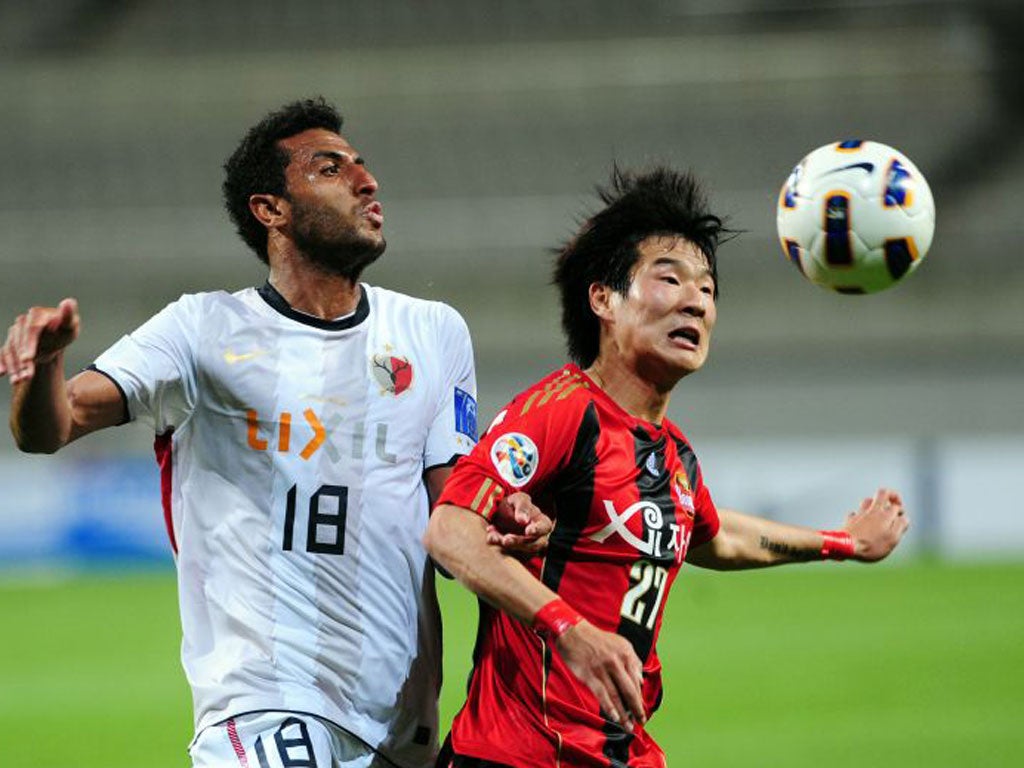Koreans follow Scottish lead in splitting league

Your support helps us to tell the story
From reproductive rights to climate change to Big Tech, The Independent is on the ground when the story is developing. Whether it's investigating the financials of Elon Musk's pro-Trump PAC or producing our latest documentary, 'The A Word', which shines a light on the American women fighting for reproductive rights, we know how important it is to parse out the facts from the messaging.
At such a critical moment in US history, we need reporters on the ground. Your donation allows us to keep sending journalists to speak to both sides of the story.
The Independent is trusted by Americans across the entire political spectrum. And unlike many other quality news outlets, we choose not to lock Americans out of our reporting and analysis with paywalls. We believe quality journalism should be available to everyone, paid for by those who can afford it.
Your support makes all the difference.In an effort to combat fan fatigue and the scourge of match-fixing, South Korea has reinvented its league football system this year, making distant Scotland an unlikely role model.
The traditional home-and-away league season was a bad fit for Korea; the lack of relegation created a lot of meaningless games late in the season, which were both a turn-off for fans in a country where football battles with baseball for attention, and also fodder for match-fixers. Searching the world for a better model, Korean authorities settled on Scotland, where the standard home-and-away fixtures make up the first three-quarters of the season before the 12 teams are split into a top half and a bottom half. Carrying points over from the main part of the season, the top half plays another series of round-robin games which determines the champions and European qualification berths, while the bottom half does the same to decide relegation.
Last year a delegation from Korea visited Glasgow to learn about the split system; and the authorities decided to adopt it this season, albeit with a 16-team league rather than 12, and with an equal number of games before and after the split, creating a marathon, 44-game league campaign.
The home-and-away section of 30 games concluded on 26 August and the season will resume on 15 September with two groups of eight to determine the champions, 2013 Asian Champions League berths and relegation, also introduced for the first time this season.
"The European league system is a little boring," Kwon Sung-jin, deputy general manager of the K-League, said. "In Korea, we're battling against other sports such as baseball. We need to make people pay attention to the league. The split system makes the league more exciting for the whole season."
Scotland introduced the split system in 2001, though it acknowledges it has some glitches. "It divides opinion. the Scottish Premier League's chief executive Neil Doncaster said. "Some like it very much, others less because of the imbalances it can create. In some seasons a team can play 18 home games and 20 away."
So far the concept has been well received in Korea. On the last day before the split, four teams were challenging for eighth position and the chance to spend the rest of the season in the top group.
"The split system is exciting," said Choi Yong-soo, coach of FC Seoul, the team on top of the standings when the split occurred. "During the last game before the split, fans at the games were asking about how other matches were going and the players were too. It is new and interesting."
The 2011 Korean match-fixing scandal resulted in more than 60 players and coaches, past and present, being indicted for accepting money to rig games. While the concept of splitting was received positively, K-League officials acknowledge that teams at the bottom of the top group and at the top of the bottom group may have little to play for, but the split ensures at least one team in every match will have something to play for. "Like capitalism, it is not a perfect system but it works for us," said Kwon.
Join our commenting forum
Join thought-provoking conversations, follow other Independent readers and see their replies
Comments